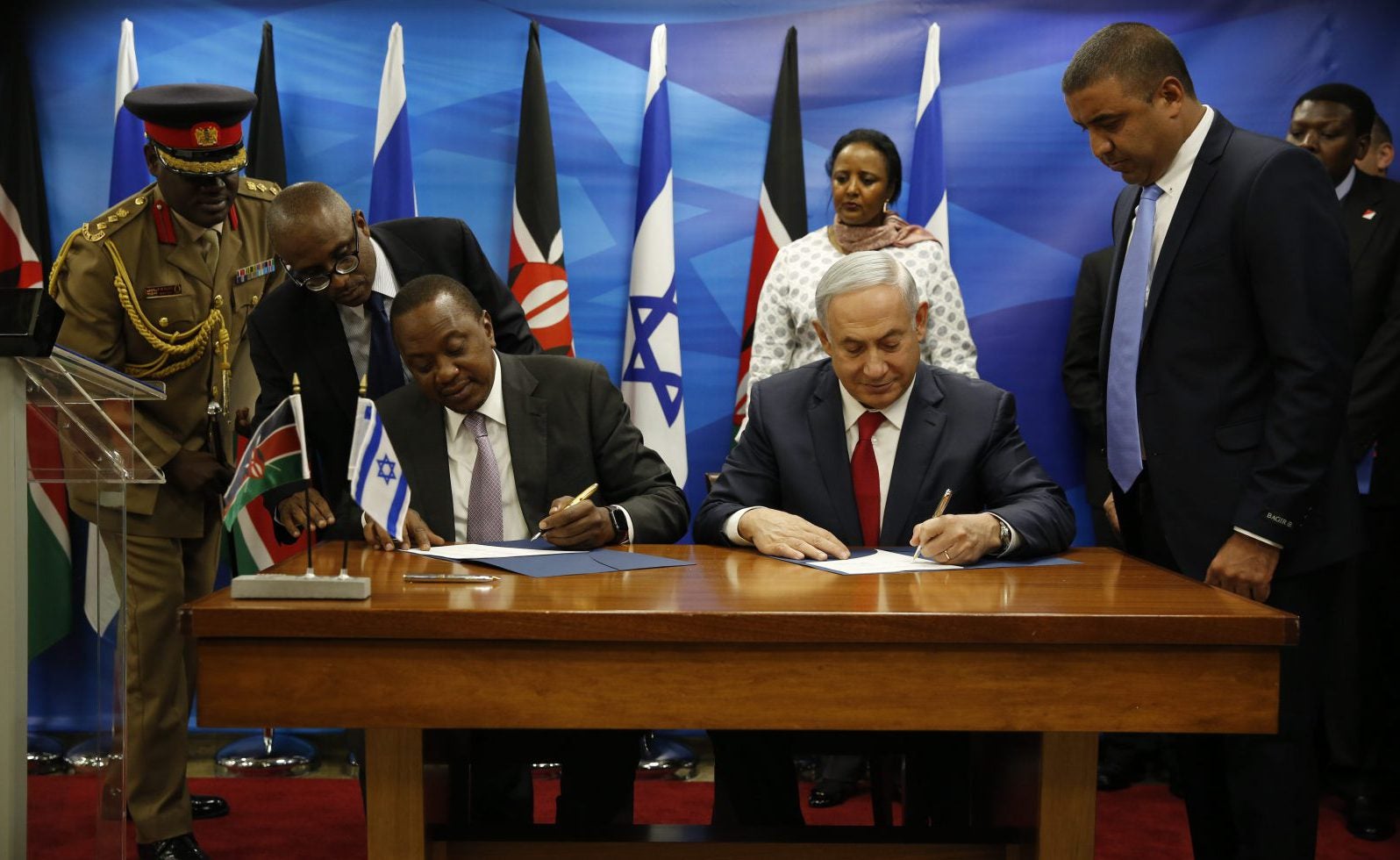Israel’s first-ever Africa summit has been canceled setting back its quest to find global alliances
Israel’s first Africa summit, a landmark event heralded to reintroduce the Jewish state to the continent, has been called off amid political upheaval in host country Togo, and pressure over Palestine from Arab nations.


Israel’s first Africa summit, a landmark event heralded to reintroduce the Jewish state to the continent, has been called off amid political upheaval in host country Togo, and pressure over Palestine from Arab nations.
President Faure Gnassingbé, who is facing calls to step down after 15 years of ruling the west African nation, informed Israeli prime minister, Benjamin Netanyahu, the event would no longer take place. Over the last few weeks, local protestors have been out in the streets demanding the return of multi-party elections and the two-term limit for heads of state. On Sep. 6, activists reported an internet shutdown of social media sites like WhatsApp and Facebook ahead of mass protests organized by the opposition.
The cancelation of the Africa-Israel summit, slated to take place between Oct. 23 and 27, will upend Israel’s efforts to build trade partnerships in Africa, and secure global allies in its attempts to gain a seat on the United Nations (UN) security council next year. The summit was first met with criticism back in January, when Palestinian activists called on African nations not to attend the summit. South Africa, Sudan, Morocco, Algeria, Tunisia, and Mauritania indicated they would boycott the summit. About 25 African leaders were scheduled to attend the event.
The relationship between Africa and Israel dates back to the 1960s when the country built diplomatic ties with newly independent African states. In Israel and Africa: The Problematic Friendship, scholar Joel Peters said Israeli saw much of their own history reflected in the liberation struggles of African nations reclaiming their own lands from colonial powers.
This period of Afro-Israeli relations came to an end during the Yom Kippur War of 1973 and the oil crisis which saw African nations cut ties with Israel in solidarity with Egypt and other Arab countries. Israel’s perception in sub-Saharan Africa was worsened by its supply of arms to the apartheid government in South Africa during the 1970s and 80s.
The Jewish state now faces an uphill battle convincing African leaders that it is a valuable global partner to the continent while attempting to gain support in its quest to become a member of the United Nations (UN) security council. African countries make up a 54-member voting bloc in the UN. Traditionally, this bloc has voted against Israel when it concerns the Israeli-Palestinian conflict but in the last three years, several African countries have abstained from voting on Israeli-Palestinian matters. Israel will also have a tough time winning over north African countries whose ties to the Arab League mean they will side with Middle Eastern interests.